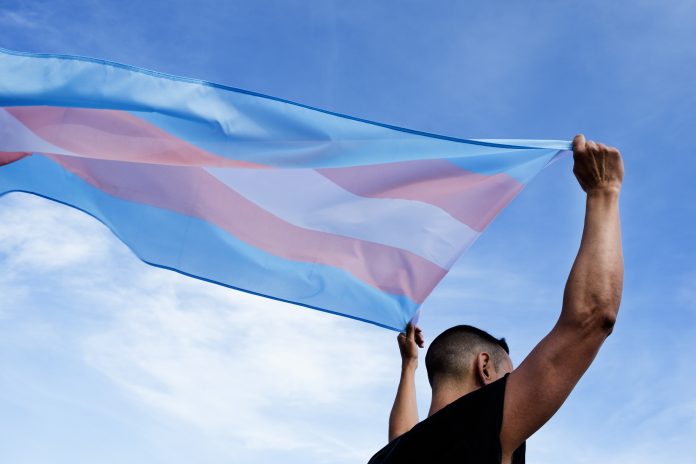Despite societal progression and increased LGBTQ+ acceptance, the transgender population still have to jump through hoops to receive healthcare in the UK
The term ‘transgender’ is used to encompass those whose identity, expression or behaviour does not align/conform with the sex they were were assigned at birth.
Societal perception of transgender individuals has shifted slightly over the last few decades as information and education has become more available. However, modern healthcare still has a way to go before it erases disparities in mortality rate – which have existed for the last 50 years.
With the performance of gender playing a crucial role in healthcare diagnosis and treatments, transgender individuals are being continuously placed in vulnerable positions.
As general knowledge about gender identity and expression grows, so does the way in which trans people are talked about in the media, popular culture, academia and scientific spheres. In response to this slight progression, there has been a rise in anti-trans sentiment from trans-exclusionary radical feminists throughout the UK. Harry Potter author, J.K. Rowling, came out in strong support of excluding trans people from the feminist movement and society in 2020. She echoed stereotypes common among anti-trans commentators, suggesting that trans women would attack cis women in bathrooms.
Medical attitudes need to catch up to general levels of understanding in order to truly support those in need. The medical sphere must improve its tolerance and equality policies in order to ensure zero discrimination for trans individuals across all levels of healthcare.
What is healthcare like for trans people in the UK?
Based on the experiences of more than 800 trans and non-binary people, a 2018 study by Stonewall looked at the discrimination trans people face on a daily basis in the UK. The report examined discrimination in their home life and in access to medical support for transition, which can significantly increase mortality rates.
The Stonewall report revealed the discrimination that transgender individuals experienced in the healthcare environment through a number of striking statistics:
- When accessing general healthcare services in the last year, two in five trans people (45%) said healthcare staff lacked understanding of trans health needs.
- 7% of trans people were refused access to healthcare because they were LGBT
- 24% fear discrimination from a healthcare provider
- 24% don’t know how to access transition relation healthcare
- 24% of trans people who are currently undergoing medical intervention are unsatisfied with the support given by their GP
Addressing and exposing the bias within healthcare
The Stonewall investigation confirms that those who identify as transgender face discrimination throughout different types of healthcare services.
This data makes clear that the medical sphere is not the safe space it needs to be. This year, the London based magazine GAYTIMES hosted an open call for transgender people who had experience with the NHS gender identity clinic (GIC) system.
In their exploratory article, GAYTIMES shed light on a dark, misinformed and narrow-minded element in healthcare. One anonymous contributor said: “I was refused a referral to the GIC because I ‘wasn’t a lesbian’ so there was no way I could be a man.”
“I was refused a referral to the GIC because I ‘wasn’t a lesbian’ so there was no way I could be a man.”
This shows a lack of knowledge in general practice medicine, which places expectations of what trans ‘should be’ on patients. For instance, in the above example, the healthcare provider assumes that a trans man should be heterosexual – that is, to be attracted to women before transition. Those that are not deemed ‘trans enough’ are rejected.
NHS staff have the opportunity to be a comforting presence in the emotional rollercoaster that is gender dysphoria and transitioning. However the UK’s national health service is failing to ensure zero tolerance of transphobic behaviour. There is not currently a substantial amount of information available in place to educate GPs on trans issues and the correct ways to treat transgender people with respect.
A House of Commons commissioned report in 2016 drew attention to the healthcare inequalities, particularly stemming from NHS staff. With the report stating that in some instances, GP staff were ‘astonishingly negative’ towards trans people in need of first appointments.
The report mentions one incident in which a GP, speaking to a patient awaiting a GIC referral, said: “You’ll be taking money away from more deserving cancer patients”.
“You’ll be taking money away from more deserving cancer patients”
This lack of empathy towards those going through gender dysphoria is one that is perpetuating poor mental health and imposter syndrome within the transgender community. Although one is commissioned by the House of Commons, a major change in educated NHS staff on trans issues is yet to take place.

Expectations of trans bodies
Those who identify as trans face discriminatory and presumptive attitudes from the general public and the medical sphere – two worlds that crucially feed into one another, informing perspectives. Through their piece in GAYTIMES, author Isaac examined healthcare presumptions of trans people and what their relationship with their own bodies should be.
Isaac explained: “Most [trans people] have been asked invasive and upsetting questions which seem to serve no real purpose other than to check that [they] are uncomfortable with [their] bodies”.
This expectation of self-hatred implies that this should be the norm and a standard for those identifying as trans.
Isaac further highlights how assumptions of trans bodies are present in UK healthcare. Right now, it seems that without a considerable increase of funding to the NHS gender identity services, there will not be much change. For trans individuals who cannot afford private gender services, the current version of UK policy is placing lives at risk.
Trans people should not have to prove themselves to cis medical practitioners who have a limited understanding of what it is to be trans.
Why is it so hard to be seen by a GIC?
When it comes to one of the seven adult GIC clinics in England, there can be an excessive waiting time – causing substantial strain on mental health.
There can also be a number of hoops to jump through on the way. Due to the ongoing pandemic, the GIC NHS webpage states that they are currently unable to provide an estimate of waiting times. In estimations provided by GAYTIMES, the team said that the shortest wait would be 37 months with the longest being 60 months – a total of 5 years.
With new referrals increasing each year, the waiting period is only growing.
A GP referral is needed for identity clinic access. Sometimes, this can be the biggest obstacle.
As shown above, NHS staff are not always up-to-date on trans issues and are not trained in how to approach and handle these situations.
Taking that first step in a GP’s office can cause a lot of anxiety – especially when so many trans people have been poorly treated in this past. This expectation of negative treatment can result in many never even requesting a referral. Illustrating the difficulty that goes into getting a GP referral, Isaac said: “as trans people we are expected to hate our bodies in order to be deemed trans enough”.
‘as trans people we are expected to hate our bodies in order to be deemed trans enough’
So, how can healthcare become more inclusive?
It is essential that UK healthcare services continue to progress and grow alongside the majority of society. Healthcare services need to be a safe haven for those of all identities, using gender neutral language should be the norm, and training for staff on transgender issues needs to be an essential part of healthcare training. Trans inclusive services are required to protect transgender individuals from discrimination.
Sexual health services will also benefit from a more trans and non-binary inclusive scheme.
There needs to be an attempt to avoid making assumptions about patients’ bodies and sexualities. There is a body of research to show that those who identify as trans are disproportionately affected by high rates of anxiety, depression and suicidal thoughts. As the data has shown, assumptions surrounding gender can reinforce harmful stereotypes and negatively impact both physical and mental health.
There is an extensive data gap for trans individuals, there has not been a cohesive effort to collate data on trans health issues and treatment. Addressing this gap is also critical if the NHS and government are really committed to improving trans healthcare and wellbeing across the country.
Sources:
- https://www.bbc.com/future/article/20200814-why-our-medical-systems-are-ignoring-transgender-people
- https://www.england.nhs.uk/ltphimenu/lgbt/lgbt-and-improving-general-practice/
- https://www.gaytimes.co.uk/life/the-uks-trans-healthcare-system-is-broken/
- https://www.gov.uk/government/publications/national-lgbt-survey-summary-report/national-lgbt-survey-summary-report#the-results
- https://www.healthwatch.co.uk/blog/2020-03-11/trans-healthcare-what-can-we-learn-people%E2%80%99s-experiences
- https://nouse.co.uk/2021/02/10/how-are-trans-rights-being-threatened-in-the-uk
- https://www.stonewall.org.uk/lgbt-britain-trans-report











